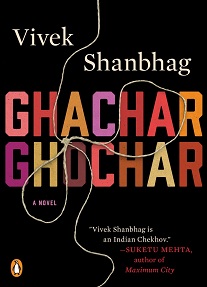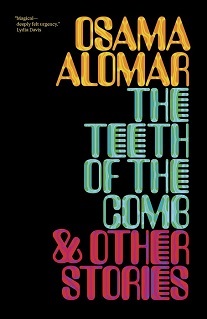Despite my ambitious plans to become a polyglot, I currently only speak and read English. But I love reading things by writers from around the world and books in translation have helped me understand and empathize with people whose lives are very different from my own.
Among my recent favorites are Ghachar Ghochar by Vivek Shanbhag (translated by Srinath Perur), Memoirs of a Polar Bear by Yoko Tawada (translated by Susan Bernofsky) and The Teeth of the Comb & Other Stories by Osama Alomar (translated by C.J. Collins).

Ghachar Ghochar charts the transitions of a South Indian family from extreme modesty to significant wealth and reveals the nuances of how the change affects the family dynamics through the eyes of the family’s son. Shanbhag has written several books in Kannada, but this is the first of his works to be translated into English. Garth Greenwell called it “exquisitely observed,” which perfectly distills my thoughts about this book. When I finished I felt like I had lived a little life inside my own, which is exactly the way I love to feel after finishing a book.

In Memoirs of a Polar Bear, I climbed into a very different kind of skin. Tawada takes the reader through the lives of three generations of polar bears in Germany, ending with Knut, a name that most animal fans will recognize. What I loved most about this book was the way Tawada boldly trusted her readers to accept the world she was building and let me see the world through a bear’s eyes. Tawada writes in both German and Japanese, and this book is an English translation of her own German translation of her original Japanese manuscript.

The Teeth of the Comb & Other Stories is the first book I have read by a Syrian writer. Some of Alomar’s stories stretch across a couple of pages and some are only one sentence long. But they all have a poetic beauty that was hypnotic. For instance, in two brief paragraphs, the title story exposes the essential error of cultivating class differences. This book is full of stunning gems and is the first of Alomar’s to be translated into English.
The kind of empathy for others that can be learned from international books feels painfully absent in society today. America is still struggling with the toxic legacy left by its history of colonialism, slavery, and oppression. The country is led by a President who spews out isolationist, xenophobic, and racist rhetoric, and more and more people around the world seem ready to embrace hatred of anyone who is “other.”
“The kind of empathy for others that can be learned from international books feels painfully absent in society today.”
This is not the kind of American (or person) I want to be, so I find myself pushing back against that in large and small ways. To remind myself that the world is simultaneously small and expansive, and that we all have more in common than we think, I am using books as a window into the lives and imaginations of people around the world.
After all, as Lisa Lucas, Director of the National Book Foundation says of books, “They make us more empathetic. They connect us to one another. They make people who are not like us more human.” Choosing books that connect me to others is one of the ways that I am pushing back against isolationism.
* * *
Talia Lakshmi Kolluri is an attorney and writer living in California’s Central Valley. She is currently at work on a novel and an animal-themed collection of short stories. Find her at taliakolluri.com.












